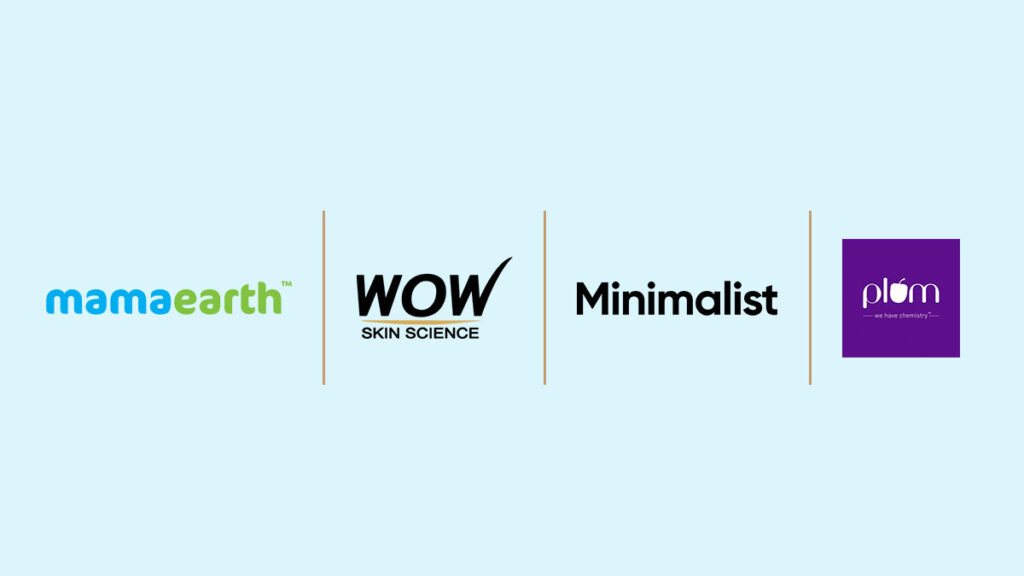The personal care industry is evolving rapidly, but not without its challenges. While the market is expanding at an unprecedented rate, many potential entrepreneurs are hesitant to jump in, doubting whether they can carve out a place in this increasingly crowded space. Both established global giants and innovative local brands are already dominating the market, creating a paradox: despite the exciting growth prospects, newcomers are questioning whether the competition is too fierce for them to succeed.
According to Fortune Business Insights, the global personal care market is projected to reach USD 716.6 billion by 2025, with India’s market expected to grow to USD 30.7 billion by 2027. This explosive growth offers a wealth of opportunities for new entrants. However, as the number of brands entering the market multiplies, from well-established names to innovative D2C (Direct-to-Consumer) startups, launching a new personal care brand feels like an uphill battle.
The Dual Influence: Indian and International Brands at Play
One of the major challenges for new entrants is the overwhelming presence of both international and homegrown brands. International companies like L’Oréal, Procter & Gamble (P&G), and Unilever have long established themselves in India. These companies bring decades of research, deep financial resources, and massive supply chains to the table. Their ability to launch high-budget campaigns and utilize cutting-edge digital marketing techniques makes it increasingly difficult for smaller brands to gain consumer attention.

Competition Among New and Established Brands
Brands such as Mamaearth, Wow Skin Science, Minimalist, and Plum are leading the charge for innovation in clean beauty, offering products with natural, eco-friendly, and sustainable ingredients that cater to the growing demand for safe and cruelty-free personal care. Their rise has shown that there is still space for new entrants that focus on consumer-centric values like transparency, ethical sourcing, and inclusivity.
However, the competition is intensifying. Established multinational companies have significant marketing budgets, extensive distribution networks, and resources for innovation, making it challenging for new players to break through. Despite this, local brands have gained momentum by specifically targeting the Indian market’s unique needs, such as affordable skincare for diverse skin types and concerns.

Innovation in Product Development and Research
Innovation remains the key to standing out in a crowded market. Minimalist, a Jaipur-based brand, exemplifies this strategy. By focusing on active ingredients and clinically tested formulations, the brand has rapidly gained traction in India’s D2C skincare segment. Minimalist’s success lies in its transparency about ingredients, which appeals to consumers who prioritize efficacy and clean beauty. The brand’s minimalist approach to packaging and product design further enhances its appeal.
Similarly, WOW Skin Science has carved a niche with its focus on natural, vegan, and cruelty-free products at an affordable price. Other brands, such as Plum and Beardo, have succeeded by focusing on niche categories like men’s grooming or clean beauty, building strong identities around these specializations.
The growing trend of personalized beauty is another area where brands can differentiate themselves. Consumers now expect products that meet their specific needs. As a result, many brands are using AI and data analytics to provide personalized skincare solutions, offering tailored products based on individual skin types, concerns, and goals.
Navigating Regulatory Hurdles and Industry Barriers
Entering the personal care space requires overcoming various regulatory challenges, particularly in ensuring product safety and quality. In India, product safety standards are overseen by agencies like the Bureau of Indian Standards (BIS) and other regulatory bodies that govern personal care products, ensuring they are safe for consumers.
Smaller brands often struggle with these regulatory requirements, which can involve time-consuming processes and significant costs. However, partnering with experienced contract manufacturers can streamline compliance with regulatory standards. These manufacturers handle production and quality assurance, allowing new entrants to focus on branding, marketing, and product innovation while ensuring the necessary industry certifications are met. By leveraging this partnership, startups can scale quickly without the need to establish large-scale manufacturing infrastructure themselves.
The Personal Care Industry: Navigating Innovation and Growth
The personal care industry is booming, driven by changing consumer preferences, technological advancements, and an increasing focus on sustainability. This dynamic growth offers vast opportunities for new brands, but also comes with its fair share of challenges. With so many established players and innovative newcomers in the market, what truly sets the successful brands apart?
What’s Working for New and Emerging Brands
Successful brands in the personal care space—whether large or small—have learned to innovate and adapt to the evolving needs of consumers. By focusing on key strategies such as transparency, clean beauty, personalization, and sustainability, these brands are making a significant impact in a crowded market.
- Transparency in Ingredients: Brands like Minimalist have won consumer trust by clearly stating what ingredients are in their products and what benefits they provide. Minimalist’s approach to offering simple yet effective formulations, coupled with ingredient transparency, has set it apart in the Indian skincare market. This transparency is a core value that appeals to consumers looking for brands that prioritize clean, safe, and clinically-backed formulations.
- Personalized Solutions: With consumers increasingly seeking products that cater to their specific needs, brands that offer personalized beauty are experiencing significant growth. Brands such as Dot & Key have tapped into this trend by offering products that target specific skin concerns, from hydration to pigmentation. This level of personalization allows consumers to create tailored skincare routines, enhancing their brand loyalty.
- Sustainability: As environmental concerns continue to grow, brands that incorporate sustainable practices into their business model are resonating with modern consumers. From eco-friendly packaging to cruelty-free formulations, sustainability has become a major driver in consumer decision-making. Brands like Kama Ayurveda combine traditional practices with modern sustainability, offering luxury products that are both eco-conscious and high-quality.
- Clean Beauty Movement: Brands like Plum have successfully embraced the clean beauty movement, offering products that are vegan, cruelty-free, and made with natural ingredients. This aligns with the growing consumer demand for products free from harmful chemicals. The brand’s focus on ethical sourcing, along with its strong marketing campaigns, has earned it a loyal following.
The Competitive Landscape: Breaking Through the Noise
While innovation is key to standing out, the personal care industry is still highly competitive, with multinational corporations like L’Oréal, Procter & Gamble (P&G), and Unilever dominating the market. These companies have extensive marketing budgets, global distribution networks, and decades of consumer trust.
However, homegrown brands are increasingly making their mark. Brands like Mamaearth have understood the importance of offering affordable, natural skincare options that meet the diverse needs of Indian consumers.
What’s Driving Success: Key Factors to Consider
Brands that are thriving in this competitive environment have several key strategies in common:
- Consumer-Centric Values: Successful brands prioritize their customers’ needs by offering value-driven products that emphasize transparency, quality, and sustainability. This consumer-first approach helps build loyalty and trust, making it easier to maintain long-term relationships with customers.
- Effective Digital Marketing: Brands are leveraging social media, influencer partnerships, and content marketing to engage with their target audience. Effective storytelling and digital presence allow brands to increase their visibility and create stronger connections with consumers.
- Adaptation to Market Trends: Staying ahead of the trends—such as the rise of personalized skincare, clean beauty, and eco-friendly products—is crucial for success. Brands that are flexible and open to change have the opportunity to adapt to shifting consumer preferences quickly.
Conclusion: Opportunities for New Entrants
Despite the competitive pressures and regulatory hurdles, the personal care industry still holds tremendous potential for new brands. Success lies in understanding and capitalizing on emerging trends such as clean beauty, sustainability, and personalization. Brands that embrace innovation and offer unique value propositions can still carve out a niche in this rapidly growing market.
Partnering with contract manufacturers can help new brands navigate regulatory challenges and streamline production. By outsourcing manufacturing, startups can focus on branding, marketing, and product innovation while maintaining compliance with industry standards. With the right strategy, new entrants can scale efficiently and bring their unique products to market without significant infrastructure costs.
The future of the personal care industry remains promising for entrepreneurs who are agile, innovative, and consumer-focused. By tapping into the evolving consumer preferences and staying ahead of trends, new brands can establish themselves as key players in this dynamic market.
Key Takeaways for Aspiring Entrepreneurs:
- Identify Consumer Trends: Focus on areas like clean beauty, personalized skincare, and sustainability.
- Leverage Digital Marketing: Use social media and influencer partnerships to build brand awareness and engagement.
- Partner with Contract Manufacturers: Streamline production and ensure compliance with industry regulations.
- Focus on Differentiation: Offer unique products or niche solutions to meet consumer needs.
- Prioritize Sustainability: Adopt eco-friendly practices to align with growing consumer demand for green beauty.
Despite the crowded nature of the personal care market, it remains ripe for innovation and growth. Entrepreneurs who understand market trends and consumer demands can still make their mark and drive long-term success.
Stay Tuned for More Insights
To stay informed about emerging trends, innovation stories, and strategies that lead to success in the personal care industry, stay connected with CMPL Industry Insight. We’ll continue to explore success stories, industry innovations, and market insights to help guide entrepreneurs through the rapidly changing landscape.


